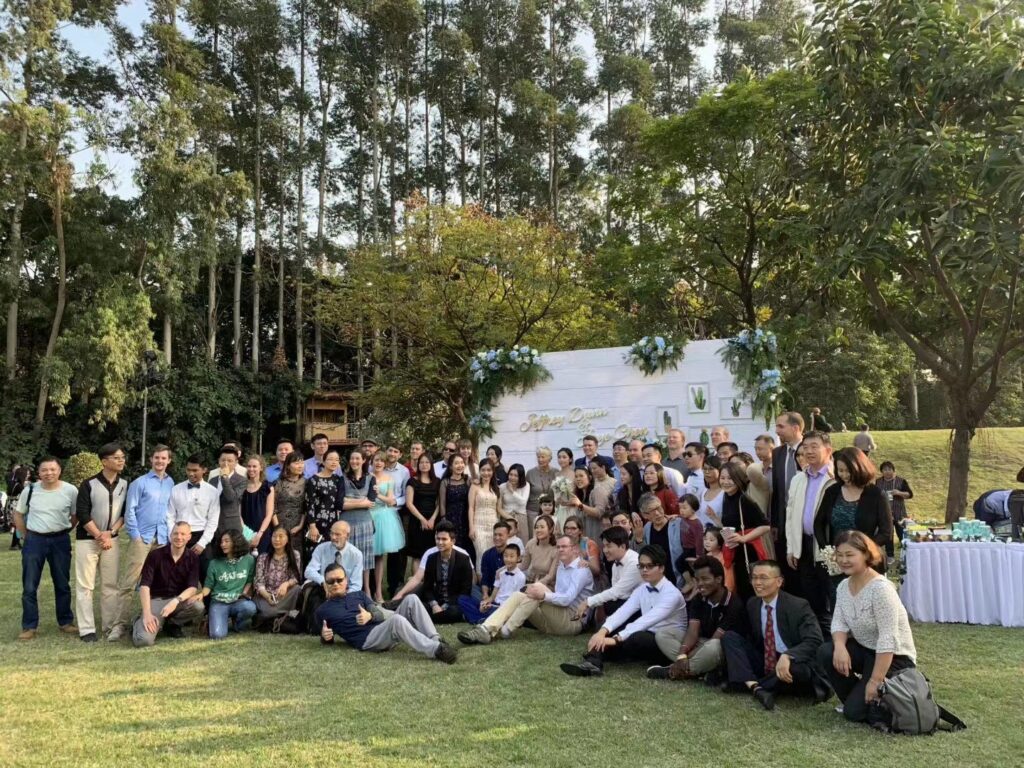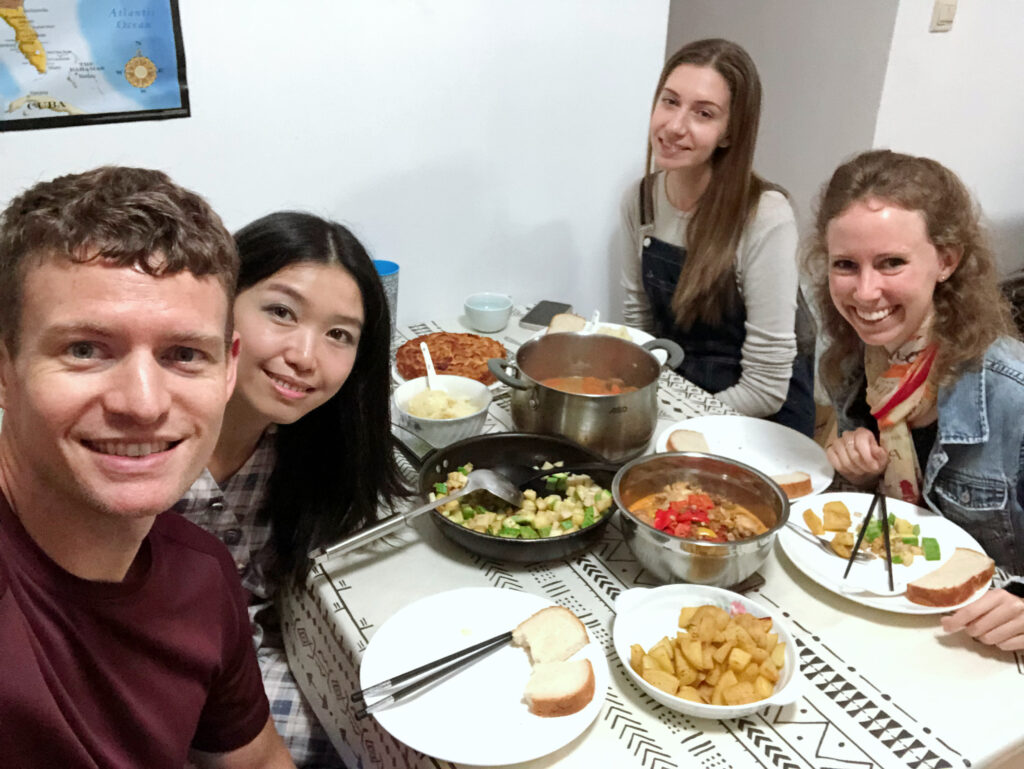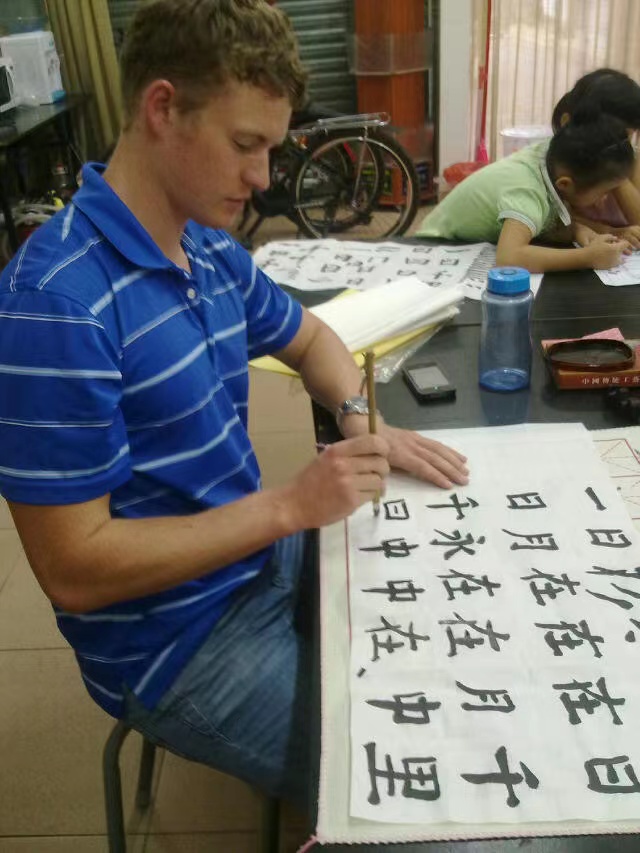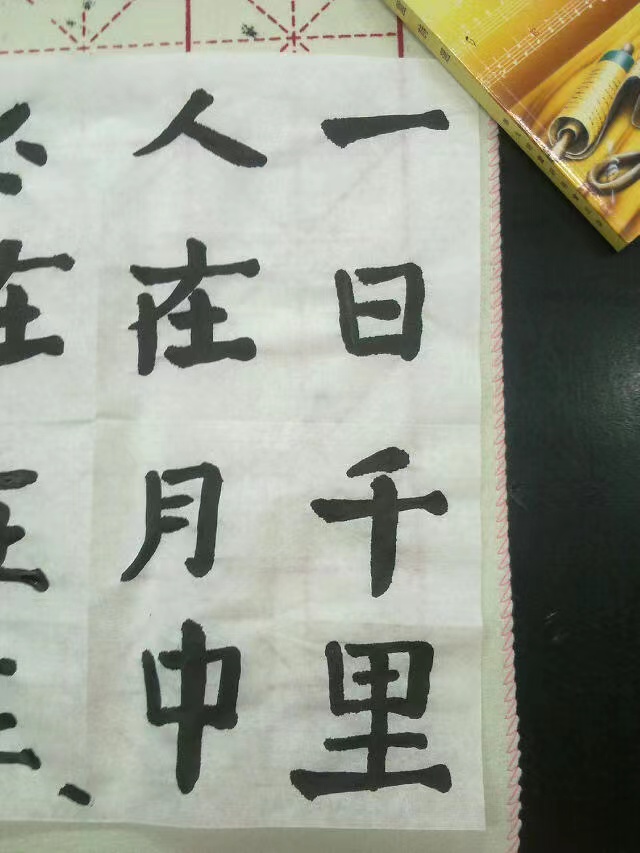I have known Jaye since I moved to Guangzhou around 5 1/2 years ago. I helped her with her wedding not long after that, but we didn’t really become close friends until Covid drastically changed our lives in 2020. Since so many of our close friends left the city, our circle of friends was smaller, and I’m thankful for the deeper friendships I developed with people who were still here.

When I was dating my ex-boyfriend, I would often go to Jaye and her husband, Jeff (who is American), for advice and insight, and I’m thankful for their wisdom and direction. Even though I didn’t stay with that guy, I’m thankful for all the things that I learned from her and Jeff and their experiences in a multi-cultural marriage.
Jaye is one of the first people to read my book, and I loved hearing her responses to and confirmation of things that I wrote about. I had one character who was super excited about learning English, and when several of my friends said that the character was unrealistic, I wondered if perhaps I needed to change it, but then Jaye said that she really identified with that character, and I was thankful to hear more opinions. That also shows that these characters are not to be taken as stereotypical of every American in China or every Chinese person in China. There are Chinese people who love studying, and there are Chinese people who hate studying. Jaye has some great insights as well, and I hope you enjoy reading her answers to these questions and her thoughts about some of the stories and how they relate to her understanding of her culture.
Jaye sent me these answers near the beginning of December 2022, right before China discontinued the zero-covid policy. Not long after that, my group of friends all got Covid, and now we are able to travel much more easily which is a huge praise! But some of Jaye’s thoughts reflect our struggles before that was possible.

1. Were there any characters that you related to in the book?
在第一个故事Braxton’s中,我对Braxton的经历深有感触。清零政策实施3年,为了防止疫情传开,造成灾难性的结果,我们周边的的商铺和小区每隔几周或几个月就会有一次封锁。很多商家因此缺少客源,无力再经营下去。而Braxton作为一个外国人,远离乡亲父老,实在是更加不容易!我们身边有很多外国人都陆续离开了,或许是因为受不了行动受到限制,又或者是出于签证和工作的原因;而剩下来的,都是理解中国,非常热爱中国的外国人。他们对中国抱有希望,努力在“狭缝”中好好活着!我知道我们耐心的等待会迎来胜利和曙光。另外一个好消息是,中国最近取消了大量防疫措施,不再要求社会面的核酸检测了,人们也可以开始自由出行了。事情在往更好的方向在发展。
In the first story about Braxton, I was deeply touched by the experience of Braxton. The zero-case anti-pandemic policy has been implemented for three years. In order to prevent the spread of the epidemic and the disastrous results, the shops and communities around us have been closed every few weeks or months. Many businesses therefore lack customers and can no longer afford to operate. As a foreigner, it is not easy for Braxton to stay away from family in another continent. Many foreigners around us have left, either because they can’t stand the restrictions on movement, or because they came across visa or job problems. The foreigners who are still here are the ones who understand and love China. They have hope for China and try to stay positive in the tough times! I know our patience will bring victory and the dawn. Another piece of good news is that China has recently lifted quite a lot of quarantine measures, no longer requiring nucleic acid testing on the public level, and people can now travel freely. Things are changing for the better.
2. Were there any characters who gave you a deeper understanding of your own culture or customs? Could you give some examples?
The Cold Shoulder这个故事让我的印象非常深刻,因为它淋漓尽致地体现了一些中国人内敛的特质。在这个故事当中,Chen Rui一直在压抑自己内心的困惑和伤心,而这些情感逐渐升级为对Ze Kai的愤怒。我们从小接触的教育就是“多一事不如少一事”、“万事以和为贵”。因此,当我们对一些人或事感到有意见时,往往会将这些意见和情感藏在自己的心里,而不是第一时间找当事人沟通。我自己原本也有这样的倾向,因为在我的原生家庭中,妈妈经常会对一些不满的事情忍气吞声。但是,在我接触了一些外国朋友后,以及嫁给了美国人后,我发现他们很善于直接表达自己的想法,不开心了会直说,他们更注重去解决缠绕在心头的一些问题,而不是掩盖问题(中国人的内敛可能暂时性地掩盖了问题,但无法解决问题)。其实我更喜欢这种直接沟通的方式,这样避免了很多的误会,以及不必要的伤心。让我很欣慰的是,Chen Rui 最后选择跟Ze Kai说出他的感受,而不是继续憋在心里。
The story of The Cold Shoulder impresses me very much, because it vividly reflects the introverted characteristics of some Chinese people. In this story, Chen Rui has been suppressing his inner confusion and sadness, which gradually escalated into anger towards Ze Kai. We have been taught from childhood that ” one fewer thing is better than one more thing” and “harmony is the most important thing in all things.” Therefore, when we have a problem with some people or things, we tend to hide these opinions and feelings, rather than trying to communicate with the relevant people immediately. Before, I was inclined to be like that, because in my family, my mother would often swallow her resentment. However, after I met some foreign friends and married an American, I found that they are good at expressing their thoughts directly. They will say so when they are unhappy, and they pay more attention to solving the problems they are holding in their mind rather than covering them up (ignoring the problems might temporarily cover them up, but it will not solve them). In fact, I prefer direct communication now, which avoids a lot of misunderstandings and unnecessary sadness. To my great relief, Chen Rui finally chose to tell Ze Kai his feelings instead of keeping them bottled up in his heart.
3. Did you learn anything specific from the stories or the characters?
我在读这本书的时候,印象特别深刻的一点是:原来外国人不太喜欢去卡拉ok!这跟中国人完全不一样:卡拉ok是我们最喜欢的娱乐活动之一,大家坐在一起听别人唱动听的歌(或者难听的歌 haha),或自己高歌一曲、跟亲朋好友合唱,不唱歌的时候尝尝美味的小吃,掷掷色子,是特别热闹和有意思的活动。读完Snapshots of China之后,我才发现原来外国人觉得卡拉ok太吵了,而且无法听到彼此说话,这对爱热闹的中国人来说完全不成问题。
One thing that struck me when reading this book was that it turns out foreigners don’t like karaoke very much! This is totally different from the Chinese: karaoke is one of our favorite recreational activities, where people sit together and listen to other people singing beautiful songs (or unpleasant singing, haha). We can sing solo or sing with friends and relatives, and when we aren’t singing, we can try delicious snacks and play dice games. It is especially lively and fun. After reading Snapshots of China, I realized that foreigners find karaoke too noisy and they can’t hear each other very well when someone is singing, which is not a problem at all for Chinese people who love that kind of excited and fun-filled atmosphere.
4. Did you have a favorite story or character in Snapshots of China?
我最喜欢的故事是 The Cold Shoulder,第二个问题解释了原因。
My favorite story is The Cold Shoulder, and the second question explains why.
5. Is there anything you wish foreigners knew about China or Chinese culture?
因为我的先生是美国人,所以我了解了美国人对中国的一些看法。很多美国人或许认为中国很落后,很多中国人是书呆子,觉得中国不是一个特别有趣的地方。但是,人们能从新闻媒体上了解到的中国是很片面的。很多外国人来到中国生活之后,对我们的国家会有很大的改观。事实上,我们的城市(例如我所在的广州)很有活力,人们的思维很活跃,工商业气氛浓厚。随处可见摩天大楼和环球美食,开车半小时即可直达森林公园。而且中国人真的超级友善,非常团结,喜欢帮助外国人!当然了,没有疫情的时候,一切都更完美。目前,中国也更欢迎外国人前来学习和工作。我希望大家都能亲自过来,体验真正的中国,而不只是从新闻媒体上了解。
My husband is an American, I have learned something about American people’s views on China. A lot of Americans may think China isn’t very developed and a lot of Chinese are nerds. Generally, they don’t think China is a very exciting place. But people get one-sided impressions of China from the media. Many foreigners come to live in China, and they have a change of opinion concerning our country. Take the city we live in (Guangzhou) as an example. It is vibrant, with many fully active minds and has a strong business atmosphere. Skyscrapers and great international cuisine are everywhere. Forest parks are usually a half-hour drive away. And Chinese people are friendly, united and love to help foreigners! Of course, everything is better when there is no pandemic. Nowadays, China is also more welcoming for foreigners to come study or work. I hope everybody can come and experience the real China for themselves, not just from the media.



6. Are there any misconceptions or stereotypes about China that you don’t think are true and wish people understood more (this can be something you saw in the book or anything else that you know about)?
“Dogs, cats and rats are a big part of the Chinese diet” – 在我看来,很少中国人喜欢吃猫、狗和老鼠(我认识的几乎没有)。吃这些食物的人会被大多数人看作是另类,也很残忍,因为这些动物是人类的好朋友(除了老鼠)。
“Dogs, cats and rats are a big part of the Chinese diet” – In my opinion, very few Chinese people like to eat cats, dogs and mice (I know almost none). People who eat those are viewed by most people as weird and cruel, because animals are good friends of humans (except mice).
Thank you so much Jaye for your wisdom and insight in sharing these thoughts with us!
